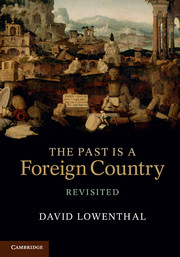Book contents
- Frontmatter
- Table of Contents
- List of illustrations
- List of permissions
- Acknowledgements
- List of abbreviations
- Introduction
- Part I Wanting the past
- Part II Disputing the past
- 4 Ancients vs. Moderns: tradition and innovation
- 5 The look of age: aversion
- 6 The look of age: affection
- Part III Knowing the past
- Part IV Remaking the past
- Select bibliography
- Index
- References
4 - Ancients vs. Moderns: tradition and innovation
from Part II - Disputing the past
Published online by Cambridge University Press: 05 November 2015
- Frontmatter
- Table of Contents
- List of illustrations
- List of permissions
- Acknowledgements
- List of abbreviations
- Introduction
- Part I Wanting the past
- Part II Disputing the past
- 4 Ancients vs. Moderns: tradition and innovation
- 5 The look of age: aversion
- 6 The look of age: affection
- Part III Knowing the past
- Part IV Remaking the past
- Select bibliography
- Index
- References
Summary
In spite of all the direct precepts of tradition, the son advances in his own way. Aristotle was assiduous to distinguish himself from Plato, Epicurus from Zeno … The work of time proceeds to the good of the race by necessary opposition.
Johann Gottfried von Herder, 1784–91When I most want to be contemporary the Past keeps pushing in, and when I long for the Past … the Present cannot be pushed away.
Robertson Davies, 1981Speak of the Moderns without contempt, and of the Ancients without idolatry.
Lord Chesterfield, 1748‘Tradition shouldn’t be the enemy of innovation’. That maxim once graced a window of the Chemical Bank of New York. I asked the bank’s archivist what it meant. ‘Oh’, she said, ‘the Chemical has all this history and tradition, and they’re saying that it doesn’t really interfere with doing new things fast, like computing your statement in two seconds’. Yet tradition is a brake on progress. We may praise the virtues of yesteryear and the benefits of relics and roots, but we also know the old has to give way, youth must be served, new ideas need room to develop. The past ought not constrain the present.
Stability and change are alike essential. We cannot function without a familiar past, but risk paralysis unless we update or replace received legacies. Yet coping amid change also demands continuity. Survival requires an inherited culture to be stable as well as malleable. Tradition is alike conservative and flexible.
- Type
- Chapter
- Information
- The Past Is a Foreign Country – Revisited , pp. 147 - 205Publisher: Cambridge University PressPrint publication year: 2015



